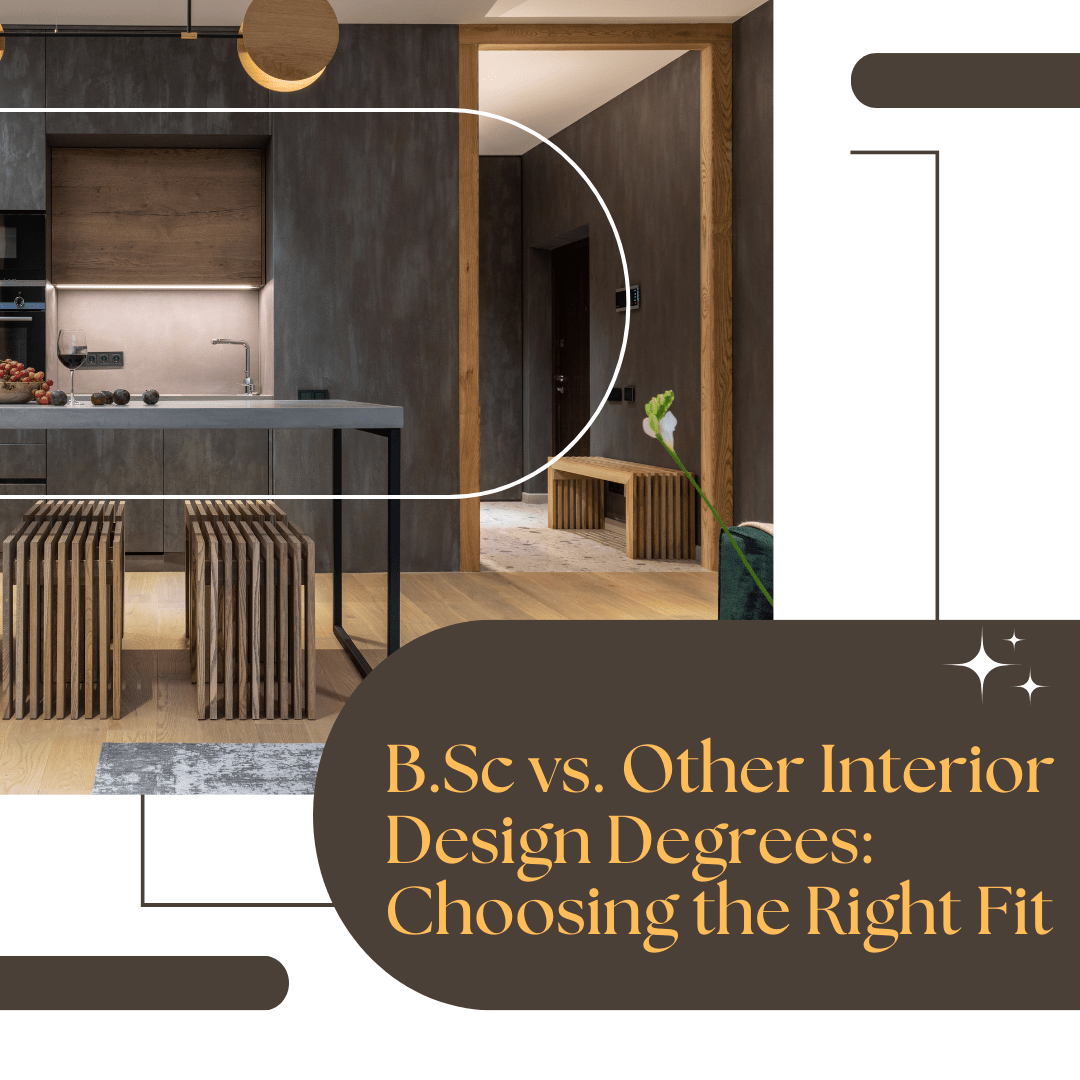When venturing into the dynamic world of interior design education, selecting the right degree program is crucial. In this guide, we’ll compare the Bachelor of Science (B.Sc) in Interior Design with other interior design degrees, helping you navigate the unique features and advantages that make the B.Sc program stand out.
Understanding B.Sc in Interior Design
1. Holistic Foundation:
B.Sc in Interior Design programs typically offer a holistic foundation, combining a comprehensive understanding of design principles with a focus on scientific and technical aspects. This creates well-rounded designers with a deep understanding of both the creative and practical dimensions of interior design.
2. Scientific Approach:
The “Science” in B.Sc signifies an analytical approach to design. This program often incorporates elements of environmental psychology, architectural science, and materials science, providing students with a scientific basis for their creative decisions.
3. Research Opportunities:
B.Sc programs commonly encourage research initiatives, allowing students to delve into design-related studies. This emphasis on research not only enhances critical thinking skills but also contributes to the advancement of interior design knowledge.
Comparing with Other Degrees
1. B.A in Interior Design:
While a Bachelor of Arts (B.A) in Interior Design may emphasize creativity, B.Sc programs offer a more balanced blend of creativity and scientific principles. B.Sc graduates often possess a deeper understanding of the technical aspects involved in design.
2. B.Des in Interior Design:
A Bachelor of Design (B.Des) in Interior Design may focus heavily on the creative process. In contrast, B.Sc programs, while equally valuing creativity, bring in a scientific perspective that enhances problem-solving and technical proficiency.
3. B.Arch with Interior Design Specialization:
For those considering a career at the intersection of architecture and interior design, a B.Arch with an Interior Design specialization may be appealing. However, B.Sc programs provide a more specialized focus on the interior aspects, offering a nuanced approach to spatial design.
Advantages of B.Sc in Interior Design
1. Diverse Skill Set:
B.Sc graduates emerge with a diverse skill set that encompasses both creative design and technical proficiency, making them versatile professionals in the field.
2. Industry Relevance:
The scientific approach of B.Sc programs aligns with industry demands, producing graduates who are not only aesthetically skilled but also capable of addressing practical challenges in design projects.
3. Future-Ready Designers:
The emphasis on research and a scientific foundation prepares B.Sc graduates to adapt to evolving design trends and contribute to the future of interior design.
Conclusion: Making an Informed Choice
As you navigate the choices in interior design education, understanding the unique advantages of a B.Sc in Interior Design is key. Whether you prioritize a holistic foundation, a scientific approach, or a diverse skill set, the B.Sc program stands out as a pathway that combines creativity with technical excellence. Choose the degree that aligns with your aspirations and sets the stage for a successful and fulfilling career in interior design.




